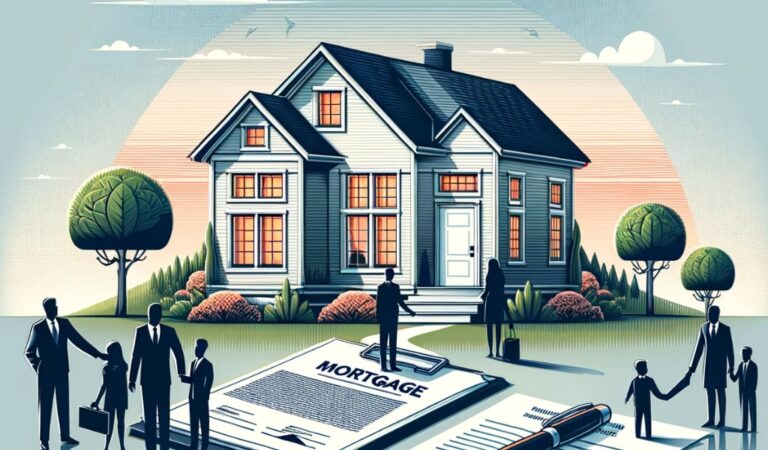The journey to owning your dream home often begins with a critical decision: choosing the right mortgage. Among the myriad of options, conventional mortgages stand out as a popular choice for many homebuyers.
This comprehensive guide aims to demystify this kind of mortgage, helping you understand if this path is your golden ticket to holding the keys to your new home.
What is a Conventional Mortgage?
A conventional mortgage, in its simplest form, is a home loan not backed by a government entity such as the Federal Housing Administration (FHA) ➔, Veterans Affairs (VA), or the United States Department of Agriculture (USDA). This independence from government insurance makes conventional mortgages a canvas for diversity and flexibility, tailored to fit a wide range of borrowers.
The High Standards of Conventional Loans
Entering the world of conventional mortgages means meeting higher benchmarks set by lenders. These loans usually require better credit scores and larger down payments compared to their government-insured counterparts.
Typically, lenders expect a minimum of 5% down, although this can vary. The silver lining? This high bar opens doors to potentially better interest rates and terms, rewarding those who have put in the work to maintain solid credit histories.
The PMI Factor
One of the most talked-about aspects of conventional mortgages is Private Mortgage Insurance (PMI). If your down payment is less than 20% of the home’s value, PMI becomes a part of your mortgage equation. This insurance, while an added cost, safeguards your lender against the risk of loan default.
The upside is that PMI isn’t a permanent fixture; it can be removed once you’ve built 20% equity in your home, effectively lowering your monthly payments.
Flexibility: The Hallmark of Conventional Loans
Conventional mortgages are celebrated for their flexibility. They come in various shapes and sizes, offering loan terms typically ranging from 10 to 30 years. Whether you’re buying a quaint suburban house, a luxurious second home, or even an investment property, these loans can be adapted to suit a broad spectrum of housing needs.
Navigating Fees and Costs
It’s essential to talk about the fees and closing costs associated with conventional loans. These can include origination fees, appraisal fees, and title insurance, among others. These costs vary widely among lenders, making it crucial to shop around and compare offers.
Credit Scores and Conventional Mortgages
Credit scores play a pivotal role in the world of conventional mortgages. A higher credit score not only increases your chances of approval but can also snag you a more attractive interest rate. While the baseline for many lenders is a score of around 620, climbing higher up the credit score ladder can lead to more favorable loan conditions.
Ideal Candidates for Conventional Mortgages
So, who stands to benefit the most from a conventional mortgage? If you have a robust credit score, can afford a substantial down payment, and are looking to bypass the additional paperwork and fees associated with government-insured loans, this could be your path.
Moreover, if your home-buying aspirations include a property that exceeds the price limits of government-backed loans, a conventional mortgage might be your only option.
Bottom Line
Conventional mortgages represent a blend of stringent lending criteria and remarkable flexibility, making them a go-to choice for financially stable borrowers seeking a traditional home financing solution. As you consider your mortgage options, remember that knowledge is power.
Understanding the nuances of conventional mortgages could be your first step towards unlocking the door to your dream home.
Are you ready to turn that key? You might want to check if you can even afford this type of loan using our mortgage affordability calculator ➔. Besides this kind of mortgage, there are 4 other mortgage types you might want to check out ➔.
Remember to always seek a professional advise from a financial advisor with specialties in Real Estate before engaging in any home purchase.


